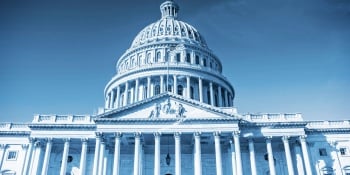Published: 07.11.2022

The second round of public hearings of the Intergovernmental Negotiating Body (INB), set up to negotiate an international agreement on pandemic prevention, preparedness and response, provided an opportunity for civil society organisations to make their voices heard in the drafting process of the new international agreement and to express their views and experiences on the Covid-19 pandemic. On the INB side, the public consultations should be an opportunity to gather input from citizens around the world in order to better take into account the experiences of civil society during the past health emergency and incorporate them into the content of the agreement. The consultations took place at the end of September and over 250 video contributions were recorded in response to INB’s question: “Based on your experience with the COVID-19 pandemic, what do you believe should be addressed at the international level to better protect against future pandemics?”. The Institute of Legal Culture Ordo Iuris also contributed to the debate with a video statement.
Will the voices of societies be heard?
In contrast to the majority position taken by the delegations of the Member States during the negotiating phases of the agreement – the majority of which were strongly in favour not only of the creation of the agreement, but also of its binding nature – a large number of submissions of the second phase of public consultations expressed strong criticism of the need for an international agreement that would strengthen the role of the WHO, especially in light of the inconsistencies encountered in the management of Covid-19.
The same Dr. Tedros Adhanom Ghebreyesus, Director General of the WHO, in the opening speech of the second round of public hearings, stated that “Part of the civil society organizations and of the public is critical on the development of this accord that will affect everyone”.
Who is behind WHO?
In this context, many of the interventions from the public have first of all pointed out that the WHO is an institution financed by private institutions, pharmaceutical industries or corporations which however are major players in the pharmaceutical companies. This factor, many pointed out, leads to an inevitable conflict of interest and prioritisation of donor programmes that contribute the bulk of the WHO budget.
Of all the statements critical of the strengthening of the role of the WHO, many also emphasised that in providing scientific information and recommendations, the WHO should be obliged to evaluate all evidence from all human virology and epidemic experts, especially considering discussions with doctors with different opinions. Within this framework, the medical researches considered should be available to all and WHO decisions or recommendations should only be based on scientific evidence.
Moreover, many speakers suggested a return to a definition of pandemic based on mortality rates rather than the level of contagiousness. Some of them also emphasised, from the point of view of recommended pandemic treatments, that investigational vaccines should not be recommended until short- and long-term reactions are known. In this framework, Ordo Iuris Institute of Legal Culture has underlined in its intervention the inefficiency, witnessed during Covid-19, of manage pandemic at the global level and stressed on the respect of freedom of choice of every individual when it comes to medical treatment as well as the need to separate political interests from the field of scientific research, supporting an independent funding of international organizations that would have any impact on the rights and obligations of individuals.
Finally, at the core of the concerns expressed by the citizens who spoke in the consultations, was the consideration that health management should in any case remain in the hands of country representatives and not be addressed globally, as local communities can react better to crisis emergencies.
All these considerations, together with the numerous comments in favour of the adoption of an international agreement, should help the member states engaged in the treaty negotiations to discuss a zero draft of the agreement at the third INB meeting in December 2022. Within this backdrop, however, it is difficult to say that the many voices critical of the agreement will be transfused into the content of the agreement, as the first round of public hearings – where equally many critical voices were raised – did not have such an effect either.
At the next INB meeting in December, indeed, INB Biuro will present delegations with a zero draft of the agreement for discussion by Member States, with the aim of presenting a progress report to the 76th World Health Assembly in 2023 and adopting the binding instrument by 2024. On the side of the European Union's contribution to the development of a drafting text, the Institute of Legal Culture Ordo Iuris asked the Europen Commission for access to all documentation relating to the position taken by the European Institution on global multilateral cooperation to agree on the work of an international pandemic treaty within the WHO and advance global health security.
EU support for a global health architecture
The documentation received on the topic, shows that the European Union indicated among the general objectives and principles that should frame the agreement, the human right to health, including access to health care and the links between health and human rights (including sexual and reproductive health and rights, as well as a gender-responsive approach to health) and the centrality of the WHO as the leading and coordinating authority in international health cooperation. The indication to include among human right to health and human rights in general sexual and reproductive rights, which in many documents prepared by the WHO include the ‘right to abortion’, opens the door to the possibility to qualify in a binding treaty, like the anti-pandemic agreement will be, this practice.
In addition, The EU suggested to established a dedicated external and monitoring body, comprised of independent experts, to which national and regional authorities would report regulatory actions and policy improvements and mandated to carry out country visits as well as to build a cooperative framework across major donors (e.g. international financial institutions, banks, bilateral donors, philanthropies) and the private sector in order to establish a new international pandemic financing facility to support capacity building.
In this context, it emerges that the EU position on the issue is strongly in favour of the idea of redesigning the health architecture of the future according to a global response model in the face of health emergencies. This approach, however, in addition to being flawed in the handling of the Covid-19 emergency, contrasts not only with many of the interventions of private citizens in public consultations that, instead, identified local and national response as the key to dealing with health crises that may arise, but also poses the risk of arriving at a final agreement that centralises health policy competences in the hands of the WHO, involving in a stable manner in the emergency response, alongside the Member States, the interests of the organisation's private donors.
Veronica Turetta – analyst of Ordo Iuris Institute

23.05.2025
We are currently engaging with think tanks and political parties across the continent to collaboratively develop a detailed counter-proposal to the centralist, anti-national, and anti-democratic vision of the European Union promoted by the European Parliament and President Macron.

19.05.2025
• The 78th World Health Assembly, the deliberative body of the World Health Organization, begins today in Geneva.

16.05.2025
On 13 May 2025, James Daniel Jordan, Chairman of the Judiciary Committee of the United States House of Representatives, together with four other members of the Committee, addressed a letter to Michael McGrath, European Commissioner for democracy, justice and the rule of law. The letter inquires how the European Union intends to respond to the actions of Donald Tusk’s government.

15.05.2025
• The European Democracy Shield, an instrument designed to guarantee the EU’s resilience against hybrid attacks and external interference, is currently being developed within European Union institutions.